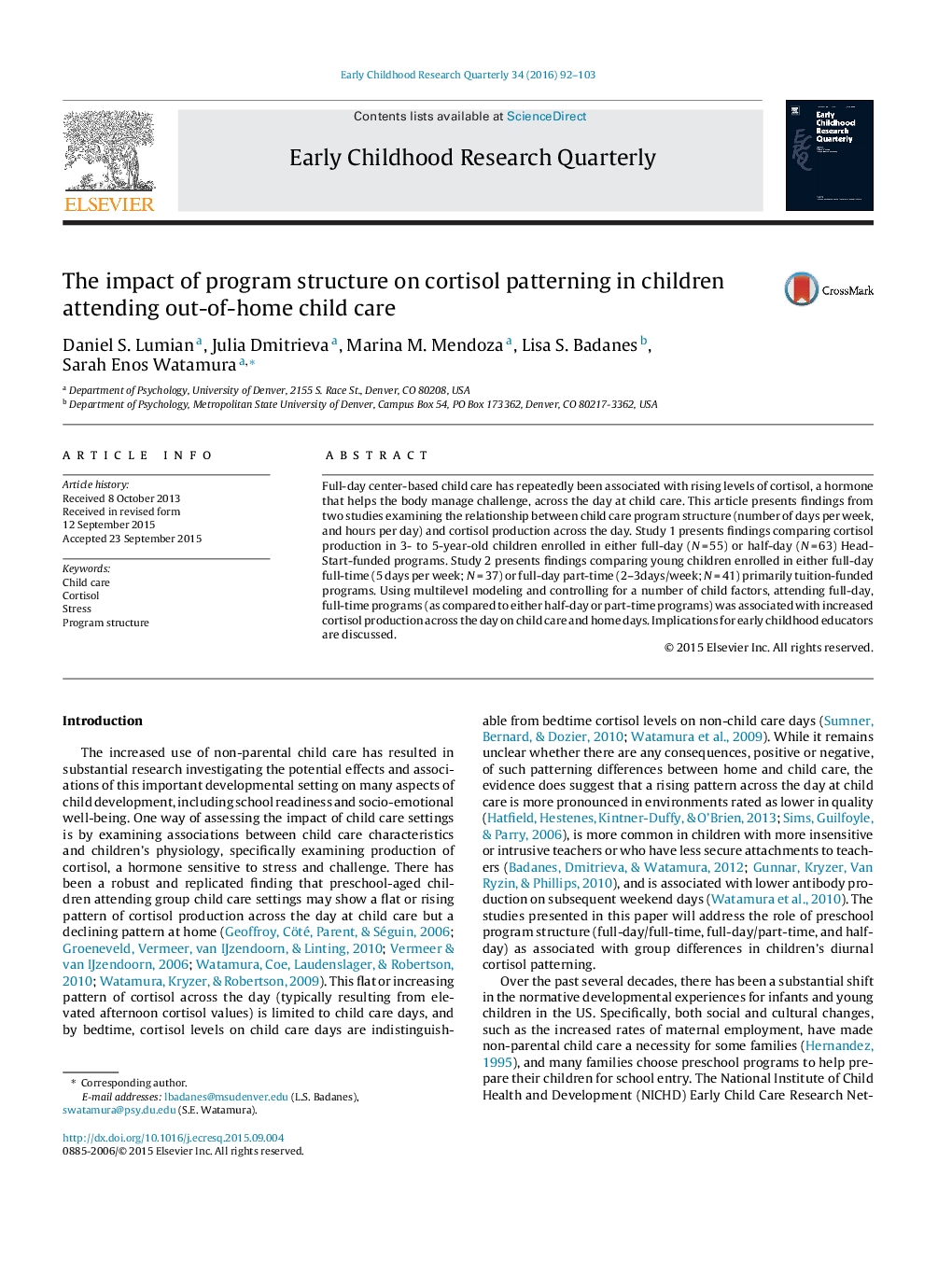| Article ID | Journal | Published Year | Pages | File Type |
|---|---|---|---|---|
| 353735 | Early Childhood Research Quarterly | 2016 | 12 Pages |
•Flat or rising cortisol across the day has been associated with full-time child care.•Children in tuition-funded full-time vs. part-time care had flatter cortisol at child care and at home.•Children in Head Start full-time vs. half-day care had flatter cortisol at child care and at home.•More hours of Head Start attendance was associated with flatter cortisol.
Full-day center-based child care has repeatedly been associated with rising levels of cortisol, a hormone that helps the body manage challenge, across the day at child care. This article presents findings from two studies examining the relationship between child care program structure (number of days per week, and hours per day) and cortisol production across the day. Study 1 presents findings comparing cortisol production in 3- to 5-year-old children enrolled in either full-day (N = 55) or half-day (N = 63) Head-Start-funded programs. Study 2 presents findings comparing young children enrolled in either full-day full-time (5 days per week; N = 37) or full-day part-time (2–3days/week; N = 41) primarily tuition-funded programs. Using multilevel modeling and controlling for a number of child factors, attending full-day, full-time programs (as compared to either half-day or part-time programs) was associated with increased cortisol production across the day on child care and home days. Implications for early childhood educators are discussed.
